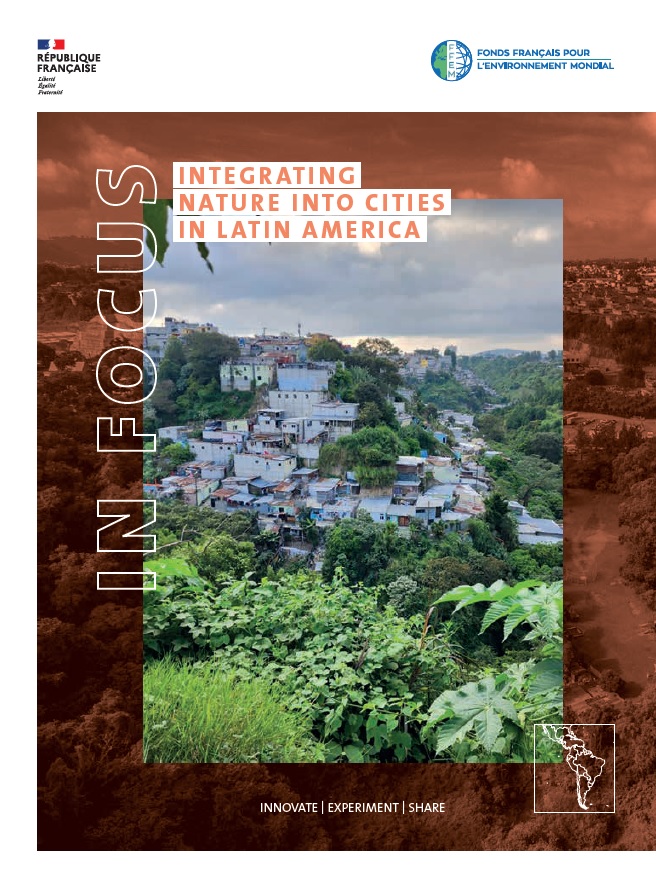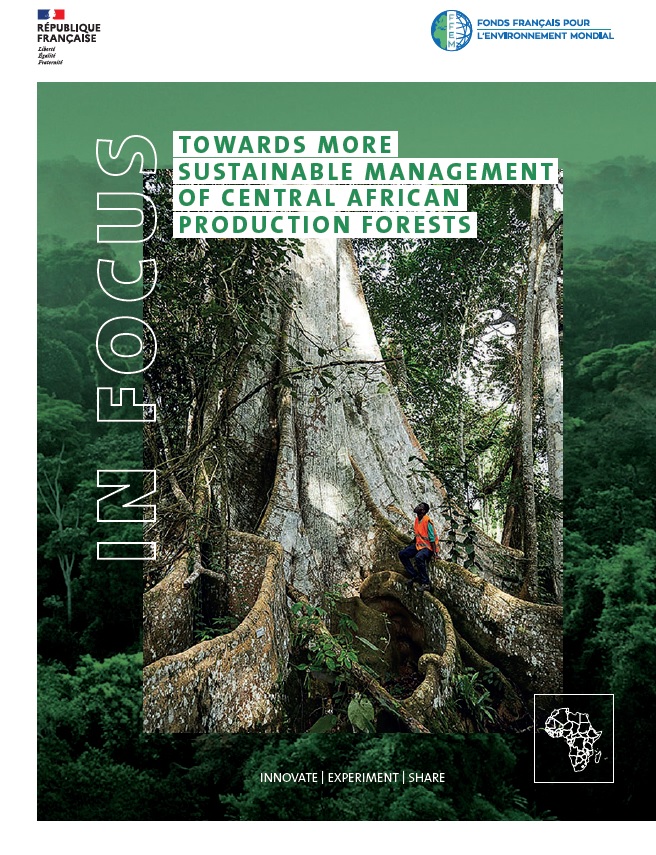Share the page
The FFEM unveils its new capitalization initiative : "IN FOCUS - Carbon finance : a level for a sustainable future"
Published on
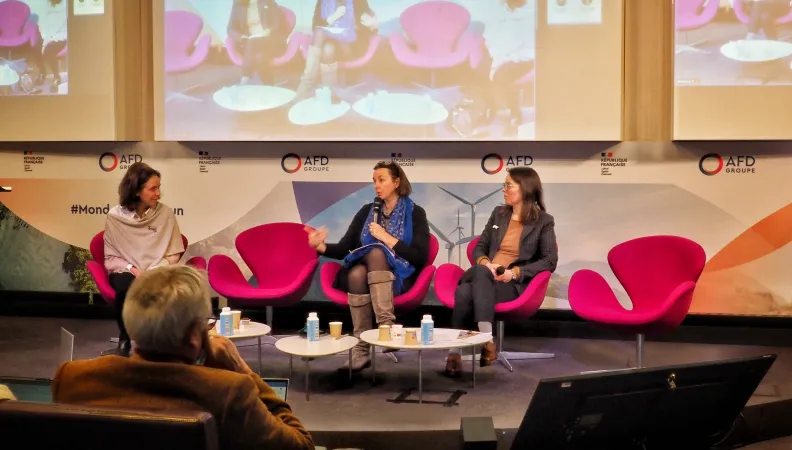
On January 21 in Paris, the French Facility for Global Environment (FFEM) organized a hybrid event to mark the publication of its capitalization work "In Focus carbon finance: a powerful tool for a sustainable future». Bringing together nearly two hundred participants, as well as experts and project leaders in a hybrid format, this event provided an opportunity to explore the critical issues and prospects of carbon finance.
IN FOCUS - Carbon finance : a level for a sustainable future
Sébastien Treyer, Director of the Institute for Sustainable Development and International Relations (IDDRI) and Chair of the FFEM Scientific and Technical Committee, opened the event by highlighting the potential of carbon finance in the Global South and emphasizing the importance of reflecting on criteria to ensure high-quality projects.
The capitalization publication, based on a selection of forest conservation and mangrove restoration projects supported by the FFEM over the past 15 years, which were involved in generating carbon credits, was presented by Tatiana de Liedekerke from the consulting firm Hamerkop. The work includes eight recommendations derived from these projects.
Several partners participated in a panel discussion to illustrate lessons from their projects. Aissa Regalla, Director of the Institute of Biodiversity and Protected Areas of Guinea-Bissau, and Didier Monteiro, Managing Director of the Bioguinea Conservation Fundation, shared how the REDD+ (Reducing Emissions from Deforestation and Forest Degradation) financial mechanism has strengthened mangrove conservation by addressing the lack of public funding and engaging local communities through benefit-sharing mechanisms.
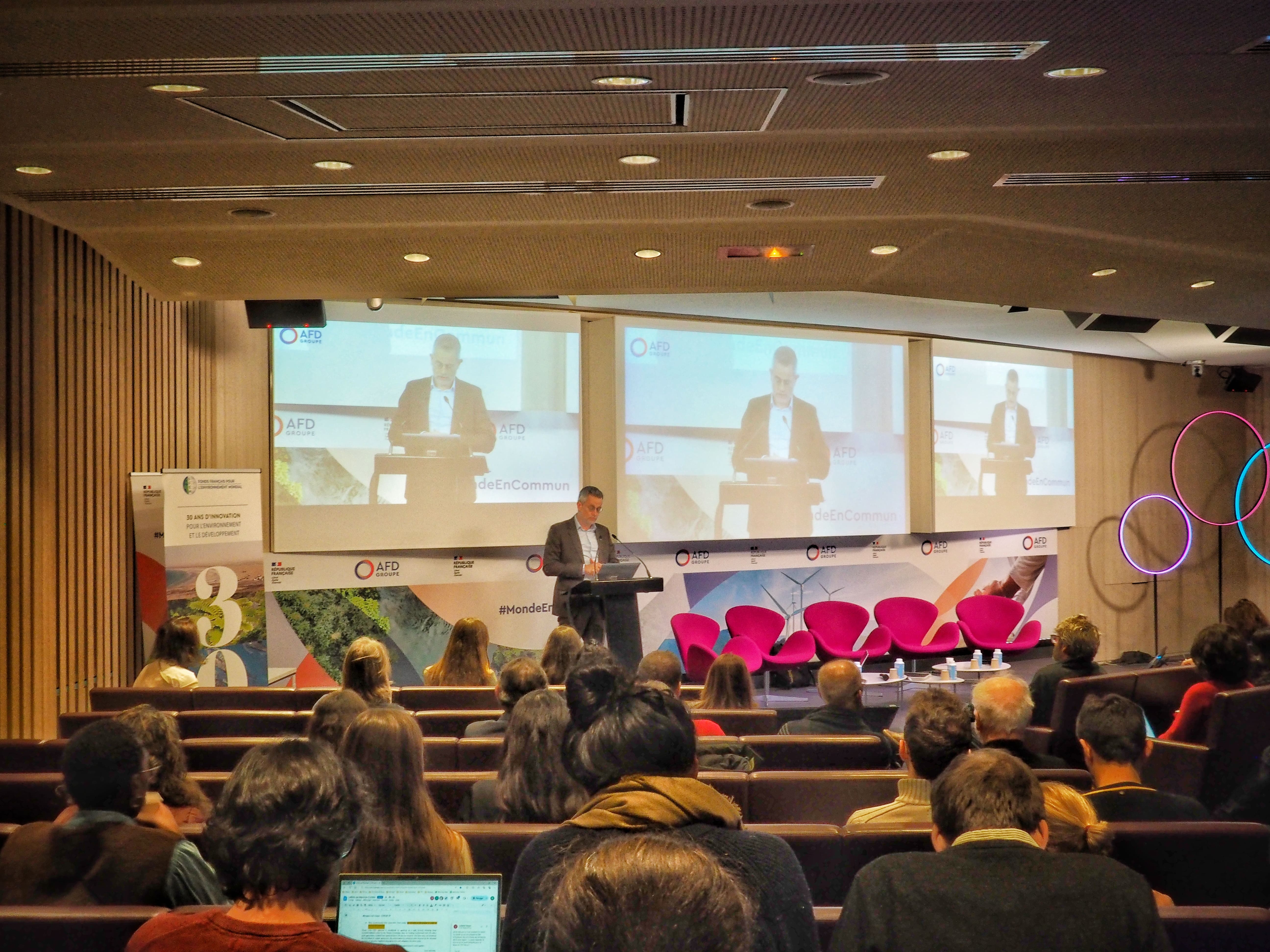
, explained Didier Monteiro.
Matthieu Tiberghien, co-director of the NGO Nitidae, shared his expertise on creating an ecological corridor in Madagascar to combat deforestation—mainly driven by subsistence farming—while preserving biodiversity and supporting local communities. He pointed out that, despite its potential, implementing REDD+ faces significant obstacles, including the volatility and complexity of national political processes and international cooperation frameworks. Thus, REDD+ should not yet be seen as a tool for financing territorial development but rather as a means of providing impetus and rationalization at the project level.
, concluded Matthieu Tiberghien.
However, the discussions did not shy away from the challenges posed by carbon finance. Dejdjiga Kachenoura, Carbon Finance Expert within the Executive Directorate for Innovation, Research and Strategy at the Agence Française de Développement, highlighted gaps in market regulation and integrity.
, she recommended.
This reflection resonated with the contributions of Stéphanie Bouziges-Eschmann, Secretary General of the FFEM, and Mathilde Bord Laurans, Head of the Climate and Nature Division at the AFD. They discussed the role of carbon finance in their respective institutions' strategies.
For the FFEM, the discussion reaffirmed its pioneering role in funding pilot projects and providing policy recommendations based on capitalization efforts. The FFEM aims to maximize the social, economic, and environmental impact of carbon finance by adhering to strict project selection criteria, such as certification to the highest international standards, robust monitoring and evaluation, shared and equitable project governance, transparent and fair benefit-sharing, and the integrity of buyers.
Mathilde Bord Laurans elaborated on the AFD’s strategic approach, which emphasizes building countries' capacity to manage their strategies for carbon markets, complementing their national decarbonization plans to ensure a coherent operation of this international system.To conclude, Thomas Melonio, Chief Economist and Executive Director for Innovation, Strategy, and Research at the AFD, emphasized the need to structure the carbon market at multiple levels while valuing efforts made at the local project level.
, he stressed.
Moderated by Maëlis Borghese, in charge of valuations and capitalizations at FFEM, the panel discussion reaffirmed FFEM’s role as a pioneer in carbon finance and contributed to collective reflection on its environmental and social impact in support of sustainable development goals.
Capitalization is central to the FFEM’s strategy. By producing reference publications and organizing exchanges such as the January 21 panel discussion, the FFEM not only disseminates lessons learned and best practices from the projects it supports but also helps guide public policies toward sustainable approaches tailored to environmental challenges.
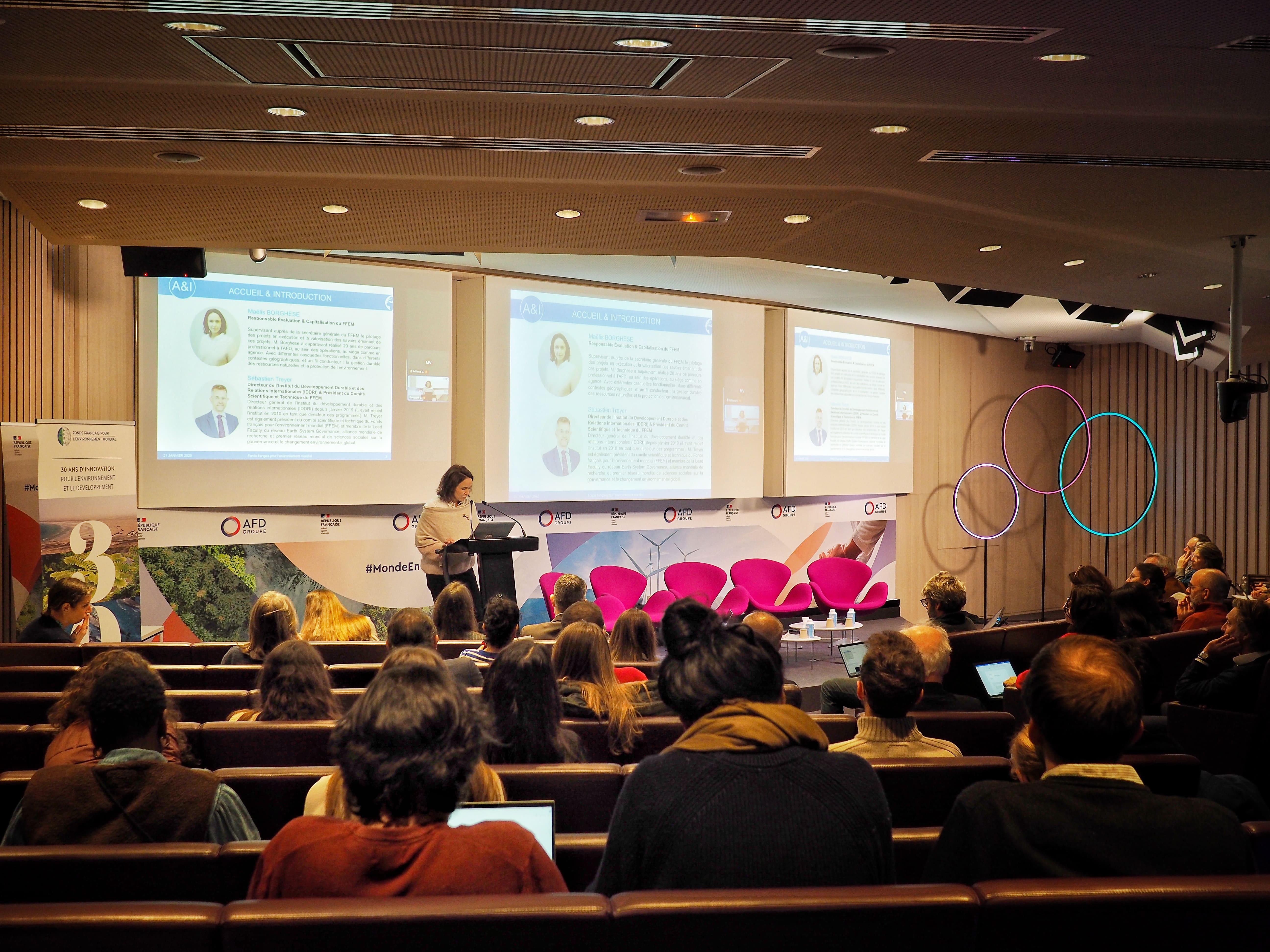
Par la suite, Mathilde Bord Laurans elaborated on the AFD’s strategic approach, which emphasizes building countries' capacity to manage their strategies for carbon markets, complementing their national decarbonization plans to ensure a coherent operation of this international system.
To conclude, Thomas Melonio, Chief Economist and Executive Director for Innovation, Strategy, and Research at the AFD, emphasized the need to structure the carbon market at multiple levels while valuing efforts made at the local project level.
, appui-t-il.
Animée par Maëlis Borghese, Responsable Évaluation et Capitalisation du FFEM, cette table-ronde a réuni divers intervenants :
- Sébastien Treyer, Directeur de l’Institut du Développement Durable et des Relations Internationales et Président du Comité Scientifique et Technique du FFEM
- Tatiana de Liedekerke, Consultante changement climatique et marché carbone chez Hamerkop Climate Change & Finance
- Aissa Regalla, Directrice de l’Institut de la Biodiversité et des Aires Protégées de Guinée Bissau
- Didier Monteiro, Directeur général du Fonds Fiduciaire de Conservation Bioguinea
- Matthieu Tiberghien, Co-Directeur de l’ONG Nitidae
- Dejdjiga Kachenoura, Experte Finance Carbone au sein de la direction exécutive de l’ Innovation, de la Stratégie et de la Recherche de l’AFD
- Stéphanie Bouziges-Eschmann, Secrétaire Générale du FFEM
- Mathilde Bord Laurans, Responsable de la division Climat et Nature, Agence française de développement
- Thomas Melonio, Chef économiste et Directeur exécutif de l'Innovation, de la Stratégie et de la Recherche de l’AFD
Zoom sur nos autres capitalisations
